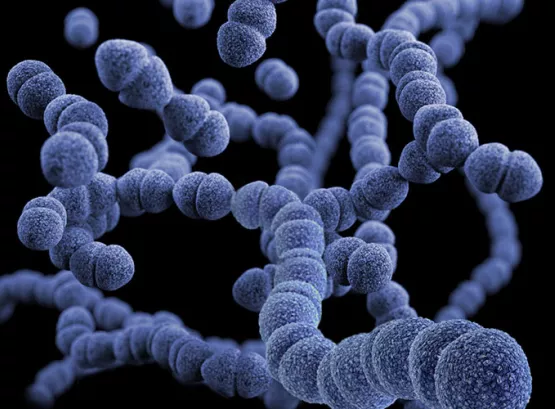Hear from Prof Sam Sheppard
As bacteria grow and replicate, random changes called mutations occur in genetic code leading to variations in the traits of different strains of bacteria. Bacteria with traits that protect against antimicrobials like antibiotic medicines are called resistant bacteria.
When bacterial populations are exposed to antimicrobial medicines, bacteria with protective traits are better able to survive and reproduce. This means more of their genes, which encode protective traits, are passed on to future generations of bacteria. This process is called natural selection, wherein resistant strains outcompete other strains without protective traits.
Understanding how genes change and mutate over time is essential to tackle the rise of antimicrobial-resistant pathogens.
Researchers at the IOI are developing bacterial genome databases, new bioinformatics approaches and performing large-scale analyses to understand resistance evolution and spread. These analyses are complemented with laboratory experiments which describe the molecular mechanisms underlying important bacterial traits. Ongoing research initiatives include:
- Global bacterial genome databases (PubMLST.org)
- High Performance Computing for ‘Big Data’ analysis
- Bioinformatics for understanding the genetics of trait variation
- Machine learning the emergence and spread of resistant strains and genes
- Artificial Intelligence for risk prediction
Technological advances bring new opportunities and challenges. IOI is harnessing the power of bioinformatics to understand the evolution of germs, genes and genomes. Armed with this knowledge we can target interventions aimed at reducing AMR.





